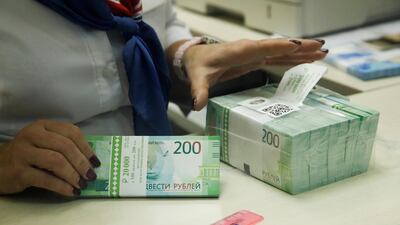Pressure on emerging markets crystalised last week with the sharp sell-off of the Turkish lira, and to a lesser extent the Russian rouble.
Idiosyncratic issues in both countries were responsible for the intensity of the sell-offs, but before these events took hold they were already weakening as part of a broader trend of emerging market vulnerability. While these individual crises will eventually pass, the broader question is whether other EM countries will be exposed to such pressures in the meantime, and what effect this might have on the rest of the world.
Although the Turkish lira has been caught up in a particularly vicious sell-off brought about by persistent economic imbalances and an unfolding political stand-off with the United States. The broader theme of the past few months has been one of a strengthening US dollar caused by expectations of rising US interest rates and hurting emerging market (EM) currencies in particular, especially those with large current account deficits and high external debt. To these were added concerns about protectionism, with the US imposing stiff tariffs on China and threatening them on others, which again triggered falls in other EM currencies. China’s tolerance of a weaker Chinese yuan further accentuated the policy divide, giving rise to more tariffs and heightened tension amidst a rising tide of economic nationalism and fears of a global trade war.
So while the lira was capturing the headlines last week, the fate of many other EM currencies was also looking quite fragile with the JP Morgan EM currency index hitting a record low, and the Russian rouble, the South African rand and the Argentine peso all tumbling. The MSCI EM equity index is also down 17 per cent since the start of this year. Developed economy currencies have not been unscathed either, with sterling revisiting post-Brexit referendum lows, unshielded from dysfunctional Brexit negotiations by the recent rise in UK interest rates. Elsewhere monetary policy divergence is another feature that is exacerbating such trends, undermining the euro and the Japanese yen amidst issues over sub-par growth and challenges over trade.
_______________
Read more:
Markets on edge amid monetary tightening and trade war uncertainty
Saudi Arabia ramps up its widening global relevance
_______________
The danger now is that regional underperformance in various parts of the world becomes embedded and a source of disruption to the rest of it through sharp swings in capital flows and currencies and potentially movements of people. Markets are clearly becoming alert to these risks, especially the possibility that bigger blocs like China and the EU become infected. Tariffs have unfortunately become an accepted part of the policy armoury in recent months, to which sanctions are now being added, giving credence to some of the claims by Turkey's President Recep Erdogan that a form of "economic warfare" is being conducted.
Usually at times of financial instability and crises, institutions like the IMF can be relied upon to work with the governments in question to come up with policy prescriptions that stabilise investor sentiment and markets. The US Treasury has often also stepped in to help. This time around, however, there are few signs that the sides to the various disputes worldwide want to be reconciled, at least not yet. And in the absence of this, the broader themes of dollar strength and protectionism will continue to play out, exposing fault lines and political differences that could spill over into even bigger and more damaging conflicts and financial market sell-offs. The US appears intent on continuing to pursue policies that will strengthen the dollar and provoke trade tensions, while its opponents show few signs of adopting more conciliatory positions on the key issues of disagreement.
In these circumstances volatility is likely to continue to rise as the perception grows that others could still be affected by tightening financial conditions amid difficult political circumstances, such as Brazil, Argentina, South Africa and Pakistan. History shows that the developed world can also be affected by EM crises, and one of the main conduits through which this could happen remains China, the world’s second largest economy which is seeking to manage a path to slower growth without disrupting a very delicate social balance.
The events of the last week offer a microcosm of what could go wrong on a much bigger scale if such a process becomes unstable, either as a result of domestic policy errors or external provocation.
Tim Fox is chief economist and head of research at Emirates NBD

